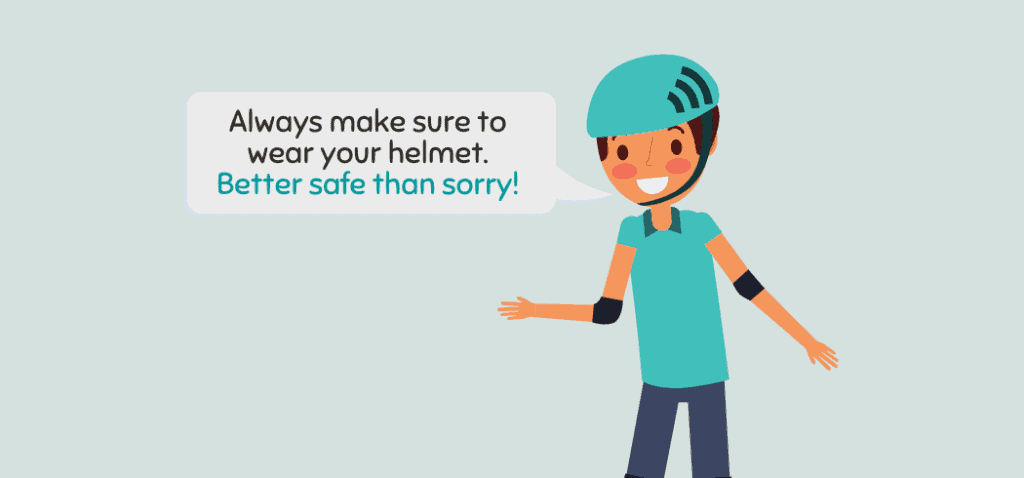You’ve probably used the common phrase “better safe than sorry” before, but do you know its true meaning and origin? Is it even proper English? I assure you it is, but I’m also going to explain a bit about the expression so you know how to use it correctly.
Better Safe Than Sorry Meaning

The widely used phrase “better safe than sorry” is a pretty self-explanatory proverb. Ultimately, it means it’s better to take any precautions and just be safe, even if it seems excessive or totally unnecessary. It’s just better to do it rather than risk harm or regret later.
We always use it to encourage caution, especially in situations where there’s potential for danger or severe injury. As a parent, I know I use the phrase all the time with my two kids because they’re little daredevils who think nothing can hurt them.
When they first started riding a bike, I was insistent on them wearing a helmet, even in the driveway. Was the risk of serious injury there? Probably not. But it was better to be safe than sorry.
Better Safe Than Sorry Origin
I’m not sure of the exact origin. It’s hard to really pinpoint when phrases like this were created without concrete documentation. It can, however, be traced back to Samuel Lover, an Irish novelist, in his story “Rory O’More,” which came out around 1837.
We know it’s been in use since at least the 19th century and is considered to be a proverb or a piece of advice passed down through generations. I’ve seen it used in various contexts over the years, including safety, critical decision-making, parenting, and risk management.
The sentiment is rooted in the simple idea of avoiding potential harm and serious regret. Think of other common proverbs like “look before you leap” and “an ounce of prevention is worth a pound of cure.” In the end, these proverbial sayings have the same basic intent.
Is It ‘Better Safe Than Sorry’ or ‘Better to Be Safe Than Sorry’?
Both “better safe than sorry” and “better to be safe than sorry” are completely acceptable to be used at any given time and have the exact same meaning. One is a more relaxed version of it, while the other (better to be safe than sorry) is more grammatically correct if you’re using it in a professional setting, like for work or school.
‘Better Safe Than Sorry’ Examples in a Sentence

- I’ll always wear a seatbelt when I drive because I like to be better safe than sorry.
- I always bring an umbrella, even if the forecast says it’s not going to rain. Better safe than sorry!
- Better safe than sorry; I’ll make a backup of my important files.
- You should wear a life jacket when you go boating to be better safe than sorry.
- I always lock my door at night because I live in the city. Better safe than sorry!
If there is a lesson to learn from the above cases, it’s that we’re better safe than sorry. (The Toronto Sun)
Better to Be Safe Than Sorry!
Now you should have a better idea of how to use this common phrase in conversation and even in your writing. Remember that both versions, ‘better safe than sorry’ and ‘better to be safe than sorry,’ are equally correct when talking about precautionary measures, and it’s up to you which one you use.
